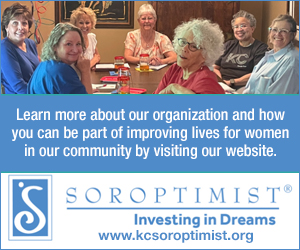 Lauren Frisch Pusateri
Lauren Frisch Pusateri
Spotlight: Theresa Hubbard: the Unconditional Therapist
Theresa Hubbard: the Unconditional Therapist
Written by Cindy Mcdermott. Photography by Lauren Frisch Pusateri
When it comes to fixing broken bones or stitching up a cut, the damage can be seen, making treatment a visual process. But what if the wound is deep in the body, perhaps even inside the brain?
This is where Theresa Hubbard steps in. Theresa is a trauma trained, licensed mental health professional who works with the whole person. She has become known as the therapist who can work with difficult issues when other providers can’t make progress. She provides a safe and welcoming environment for those suffering with a traumatic brain injury and the negative impact it can have on their life. She’s become known as the “Unconditional Therapist.”
Taking a Deeper Look during Therapy
“I’ve worked in the mental health field for more than a decade, and I’ve focused on patients who are treatment resistant. For instance, they simply didn’t show improvement, even though they were truly engaging in their therapy process,” revealed Theresa. “Then I discovered that many had suffered a brain injury sometime in their life. Perhaps it was a car wreck, sports injury or some other accident. Knowing that, I can work with them in other ways to help them manage their behaviors and symptoms.”
Theresa’s education background is impressive. She holds a bachelor of arts in philosophy and a master of science in family therapy. She is a licensed clinical marriage and family therapist in Kansas and a licensed marital and family therapist in Missouri. Her skillset allows her to diagnose and treat a wide array of issues. In addition, she has completed both levels of training in eye movement desensitization and reprocessing, or EMDR. She is proficient in neurofeedback, biofeedback, and the Enneagram personality types. She is an advanced certified clinical hypnotherapist. In addition, Theresa is the treasurer for the Missouri Association for Marital and Family Therapy.
Techniques That Encourage Change
“I guide people in learning effective ways to better regulate their brain waves and life experience utilizing various techniques,” Theresa shared. “Biofeedback, neurofeedback and mindfulness are all means of reaching a patient’s goal of a more balanced life experience and a brain better able to regulate itself based on the patient’s individual symptoms.”
Neurofeedback is a technology-based learning technique that Theresa uses to provide real-time information about a patient’s electroencephalogram, or EEG, activity. Through this type of brain training, a person can alter their own brainwave characteristics by challenging the brain to learn to reorganize and by conditioning the brain to function better. The EEG technique is a process in which subtle brainwave information is amplified and shown back to the client in the form of a computer training challenge. The object is to re-educate the brain to make voluntary changes via computerized graphic displays and auditory signals. This encourages a change in the mental state and challenges the brain to function more effectively.
“For instance, the client and I may talk about a particular subject and I can see on the EEG that they are displaying a negative reaction. Most people are initially unaware of what is happening,” Theresa stated. “With that knowledge, I can help the client devise another way to cope with that negative reaction.”
Theresa may also employ EMDR as a way to help people with trauma beyond traditional talk therapy. EMDR is an individual psychotherapy that uses bilateral stimulation of the brain to help people process certain experiences. Theresa has been a Level 2 EMDR practitioner for more than ten years.
A Healing Presence
While she is highly focused in using neurofeedback on brain injury clients, including persons with all types of concussions, Theresa also treats individuals who are struggling to relax, having difficulty sleeping, losing focus and experiencing other symptoms that can indicate unregulated brain waves. In addition to individual counseling, Theresa also works with families and couples.
“I am passionate about helping people heal,” shared Theresa. “I believe you will experience a compassionate and peaceful presence as I am able to stay present with you in your intense emotion, allowing you the experience of being heard, understood, nurtured and supported.”
There are options to work with Theresa one on one or in a group setting.Theresa is the owner of The Journey Home, which hosts mindfulness retreats that she facilitates. The Journey Home also hosts special occasions including weddings and family reunions. It is located in Dearborn, Missouri, 15 miles north of the Kansas City International Airport.
“As the Unconditional Therapist, my treatment offers hope to my patients and their families,” commented Theresa. “Unfortunately, we can’t cure the injury that they suffered to their brain, but we can teach them to become more aware of their actions, have better control of them and then positively engage in life. Simply put, they learn to take better care of themselves.” HLM
To learn more, visit unconditionaltherapist.com or call 816-407-7706. You may also visit journeyhomeretreats.com.









